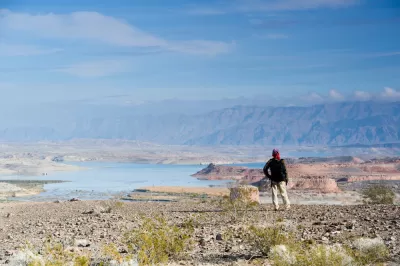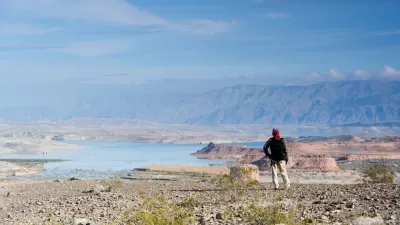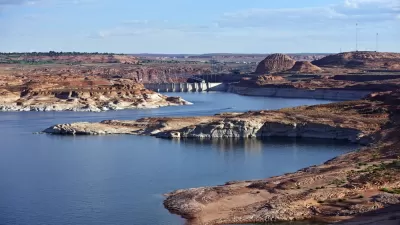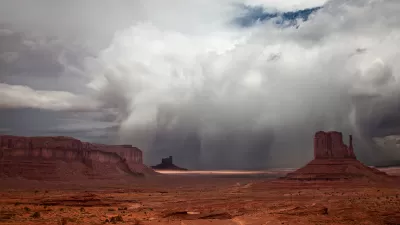More questions than answers on the Colorado River this week as the federal government failed to deliver on threats to force Southwest states to cut back on water use.

Various levels of government have failed to achieve a lasting agreement on how to cut back water use along the Colorado River, a critical supply of water for 40 million Americans that is dwindling quickly amid a historic drought with very little chance of relief on the horizon.
An article by Nick Bowlin for High Country News summarizes the situation after major developments this week:
In June, the Bureau of Reclamation, the Interior Department agency that manages water infrastructure in the Western U.S., told the seven states involved — the “Upper Basin” states of Colorado, New Mexico, Utah and Wyoming, and the “Lower Basin” states of Arizona, California and Nevada — to cut back substantially on the water they collectively use. Otherwise, the agency warned, it would impose drastic cuts anyway.
However, the states failed to cut a deal. And on Tuesday, Interior Department officials declined to follow through on their threat, leaving a big question mark about how the federal government intends to address an increasingly dire situation.
An August 16 press release from the U.S. Department of the Interior announced decision, calling the need for action “urgent” but producing what Bowlin describes as “meager” cuts—“far less severe” than threatened in July.
According to Bowlin’s analysis, nothing announced by the Department of the Interior goes beyond measures already enacted by the Drought Contingency Plan (DCP) approved by seven U.S. states and Congress in 2019. The DCP already triggered cutbacks on the Upper Colorado River Basin states (i.e., Colorado, Utah, New Mexico, and Wyoming) in January 2021 and again in May 2021.
The reductions announced earlier this week will focus more on the Lower Basin states, Arizona and Nevada. Arizona “will lose 592,000 acre-feet in 2023 — 21% of its annual allotment (this figure includes an existing cutback from last year),” reports Bowlin. “Nevada will lose about 25,000 acre-feet, and Mexico will lose 104,000 acre-feet, or 7% of its annual portion.”
The Department of the Interior’s action was triggered by water levels falling below “Tier 2” levels, as defined by the DCP, on Lake Mead. California, another Lower Basin state, hasn’t lost any of its Colorado River water, yet. The Golden State will lose water when Lake Mead falls below the next shortage level, according to Bowlin.
FULL STORY: The feds declined to seriously cut Colorado River water use. Here’s what that means

Alabama: Trump Terminates Settlements for Black Communities Harmed By Raw Sewage
Trump deemed the landmark civil rights agreement “illegal DEI and environmental justice policy.”

Study: Maui’s Plan to Convert Vacation Rentals to Long-Term Housing Could Cause Nearly $1 Billion Economic Loss
The plan would reduce visitor accommodation by 25% resulting in 1,900 jobs lost.

Planetizen Federal Action Tracker
A weekly monitor of how Trump’s orders and actions are impacting planners and planning in America.

Wind Energy on the Rise Despite Federal Policy Reversal
The Trump administration is revoking federal support for renewable energy, but demand for new projects continues unabated.

Passengers Flock to Caltrain After Electrification
The new electric trains are running faster and more reliably, leading to strong ridership growth on the Bay Area rail system.

Texas Churches Rally Behind ‘Yes in God’s Back Yard’ Legislation
Religious leaders want the state to reduce zoning regulations to streamline leasing church-owned land to housing developers.
Urban Design for Planners 1: Software Tools
This six-course series explores essential urban design concepts using open source software and equips planners with the tools they need to participate fully in the urban design process.
Planning for Universal Design
Learn the tools for implementing Universal Design in planning regulations.
Caltrans
Smith Gee Studio
Institute for Housing and Urban Development Studies (IHS)
City of Grandview
Harvard GSD Executive Education
Toledo-Lucas County Plan Commissions
Salt Lake City
NYU Wagner Graduate School of Public Service





























